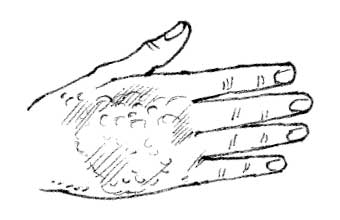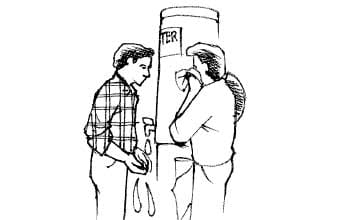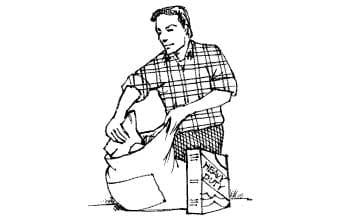Here are some key points.
- Good personal hygiene helps prevent illnesses.
- Wash your hands several times each day, especially if you work in areas where chemicals have been applied.
- Report skin rashes and similar problems to your supervisor.
Why personal hygiene is important
Good personal hygiene, including cleanliness, is important on the job for these reasons:
- It helps keep you from getting sick. Staying clean helps fight disease-causing germs.
- It keeps your co-workers healthy. Bacteria and other germs are easily spread from person to person by personal contact.
- It reduces your chances of winding up with skin problems, such as dermatitis, which can be difficult to treat.
- It makes the work site more pleasant for everyone, including co-workers and visitors.
Hand washing is critical
- One of the easiest ways to cut down on illnesses is to wash your hands several times a day.
- Be sure to wash your hands before you eat, drink, smoke, chew gum or tobacco. Also wash your hands before and after using the toilet, working with chemicals, or putting on a bandage.
Here are some steps to follow:
- Wet your hands under running water. Keep the water running.
- Apply soap, and rub your hands together.
- Work up a good soapy lather, and wash all parts of your hands, including the backs, your wrists, between your fingers and under your fingernails.
- Thoroughly rinse off all the soap.
- Dry your hands with a clean paper towel.
- Turn off the water faucet with your used towel. Don’t touch the faucet with your clean hands.
Working with chemicals
- It’s especially important to practice good personal hygiene when you may come into contact with pesticides or other chemicals.
- Pesticides or pesticide residues on plants and crops can result in skin rashes. So can coming into contact with certain plants.
- Sometimes workers find out their skin problems were due to a failure to keep their hands clean.
- If you work in areas where chemicals are applied:
- Always wear the proper PPE.
- Wash your whole body, including your hair, after work each day, using plenty of soap and water.
- Wash your hands and face before you eat, drink, smoke or use the toilet.
- Wash your work clothes separately from your other clothes and separately from the family laundry.
More personal hygiene tips
- Shower each day. Dry yourself thoroughly, including between your fingers and toes.
- Use soap when you shower, and use deodorant each day.
- Wash your work clothes before rewearing them to remove dirt, sweat and other residues. Use either a liquid or powdered laundry detergent. Follow the instructions that come with it on how much to use.
- Wear clean socks to work each day. Cotton socks are best because they “breathe” and absorb moisture.
- If you work in a wet environment, try to change your shoes every other day to give them a good chance to dry out.
- Use our toilet facilities when you need to go to the bathroom. And be sure to keep the facilities clean for your co-workers.
- Take care of problems before they become serious. Tell your supervisor if you develop a skin rash or other problem. Often these can be treated without a visit to the doctor.
Good Personal Hygiene Do’s and Don’ts
Do
- Shower daily. Don’t forget to wash behind your ears and between your toes.
- Keep your hands and face clean, especially if you work in an area where chemicals have been applied.
- Practice good hygiene at home as well as on the job.
Don't
- Use your co-workers’ combs, brushes or other personal care items.
- Leave the bathroom unclean for the next person.
- Wash clothes that may have pesticide residues on them with the family laundry.
When you’re ready to work safely, you’re ready to work. See our full line of safety supplies, including respirators, eye and ear protection, coveralls, first aid and more.










